Dr Michael Nikolaides, senior vice-president, Production Network, Supply Chain Management and Logistics at BMW Group, talks to Automotive Logistics about making cross-functional decisions to make the OEM’s supply chain more localised, digitalised and efficient
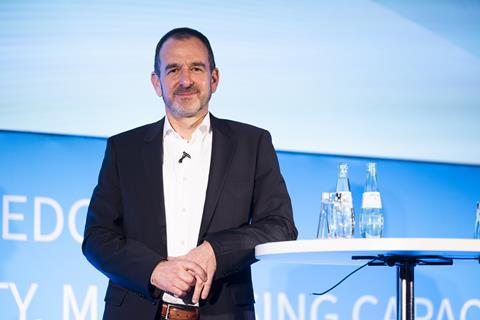
As part of his responsibilities as head of global logistics, Dr Michael Nikolaides chairs a steering committee that combines input from multiple departments, including production, procurement, sales and logistics divisions. Such integrated decisions have enhanced BMW’s resilience and visibility, and supported decisions that support localisation and sustainability objectives, for example.
Having taken over the top role in logistics in early 2022, Nikolaides views logistics as a competitive advantage and has enabled the function to become more influential across the wider BMW Group.
At the Automotive Logistics and Supply Chain Europe conference in Bonn, Germany, Nikolaides sat down with Automotive Logistics to talk about the benefits of cross-functional decisions in logistics and how localisation can strengthen the group’s resilience to help face future supply chain crises.
Has the supply chain stabilised considerably? And if so, how?
Nikolaides: Yes, I think overall, you can see a stabilisation from the times we were experiencing during Covid and then the semiconductor shortages. The general fluctuations get smaller, but we still see a lot of disruptions going on, for example, the Red Sea crisis. This was a disruption which really took us off guard. It was from one day to the other where we had to reroute all our materials and all our cars from the Red Sea all around Africa. So generally speaking, yes, it stabilised. Is it back to the good old times? No. And will it be there in the near future? I hope, but I don’t believe so.
How are you managing disruption in a cross-functional way?
I think that there are three factors which made us successful, even though the external world was very volatile. The first thing, and something you have to think about very early, is the design. How do you set up your system? If you’re flexible, this will pay off in volatile times. And we try to more and more influence the design of the supply chain from a program and volatility perspective. That’s one of the key success factors.
The second, which really changed over the last five years, is digitalisation and data accuracy, and using artificial intelligence and algorithms to extract the relevant data out of these vast amount of data out there.
And the third thing is that you must bring together the right people, empower them to make decisions, and then have all relevant aspects on one table so you can make quick decisions, because if the external world is fluctuating on a daily basis, it doesn’t help if you have a committee every month.
Read more: BMW’s secret to success is preparation
Does increased digitalisation mean a greater focus on cybersecurity?
Yes, it becomes more and more important, and we can see that the number of attacks and attempts to attack the industry are increasing. So that plays a very important role for us to stabilise and to protect the relevant data. Then you have to make sure that everybody understands the importance of cybersecurity, because if you look at all the examples where something went wrong, most of the time it was a human error and not because somebody wanted to do something wrong. Most of the time it’s because the knowledge was not there. We really partner with our suppliers and try to educate and train, and explain. That’s really important.
Does the open and interoperable data ecosystem Catena-X come into play with that?
Yes, Catena-X is a great example where we try to standardise. In the end, if every OEM has its own solution with every supplier then it won’t work. In Catena-X, the idea is just to have a common standard to do that, and you need to have cybersecurity in mind.
Read more: BMW among 10 companies that have set up Cofinity-X platform
In the wider supply chain, does Catena-X provide more visibility upstream?
Yes, and we’re convinced that you get a mutual benefit for the suppliers as well as the OEMs if you have standardised, transparent data and you can take database decisions.
What is your strategy regarding localisation?
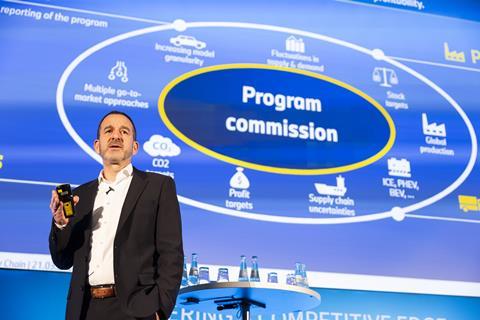
At a very early stage, we try to take the resilience of our supply chain into account. In the end, quite naturally, if you are at the location where you produce your cars and you have your parts produced nearby, then you are more resilient than if you bring it all over the globe. We always try to make decisions on the focus of total landed costs, not only parts costs but also logistics costs. We try to account for how high the risk is, and work out is it maybe even more resilient to have localisation through having a supplier nearby instead of just going for best cost country? In Germany we have a saying that the cheapest solution in the long run might not be the best solution. You have to balance it out.
Is localisation more difficult when it comes to the EV supply chain, as the materials are very difficult to source?
It depends. There you have to partner with your suppliers, and I think battery cell manufacturers understand and try to localise in other areas of the world, not only in China.
How do you help shape the production network design, and how far in advance do you need to look at model plans?
If you take the right decisions early on towards resilience, then you can handle volatility way more efficiently. That’s one of the success factors and that’s the reason we put that in one department. We have, in my responsibility, the design of the supply chain, which we’re really influencing a lot, not only in purchasing, also supply chain and production system. If you know what happens today, then you maybe take different decisions in five years from now. That’s one organisational and structural advantage we have.
Read more: How BMW is navigating the new ‘never normal’ in logistics
Are you seeing a lot of those decisions implemented holistically in, for example, the BMW plant in Hungary where the Neue Klasse is coming into production?
Yes, like Joachim Post, our purchasing board member said, our top strategy is localisation and local for local. When it comes to plant allocation, we have that for decades now. So we want to produce cars as far as possible in the markets where we sell them, which also brings down your efforts in transporting cars all over the world which is good for sustainability and good for resilience. You have to figure out clever solutions for your production system because being a small-scale manufacturer, you don’t have a single plan for each and every key area, you have to find flexible solutions which are efficient. That’s the key. The earlier you understand that and the earlier you try to implement that, the easier it gets. It also helps with EV logistics because the basic principle is to have production and supply chain as near as possible to the final assembly site, which helps because batteries are heavy to transport, they are huge and that doesn’t improve resilience.
How is digital twin technology helping?
What we really try to implement is the complete intralogistics and we can do that in our plant in Debrecen, Hungary, for example. There we test autonomous transports of energy modules from the production side to the assembly line. Then you could think further and you could try to simulate supply chains there. Right now, we’re focused on intralogistics.
ALSC Europe 2024 took place 19-21 March in Kameha Grand Bonn, Germany. For more interesting discussions, key points and takeaways from the event, as well as Red Sofa video interviews, visit our highlights page.
To find out more about ALSC Europe and register for next year, click here.


























![Global[1]](https://d3n5uof8vony13.cloudfront.net/Pictures/web/a/d/s/global1_726550.svgz)





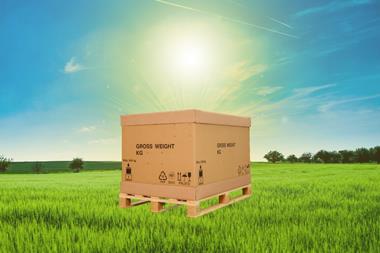

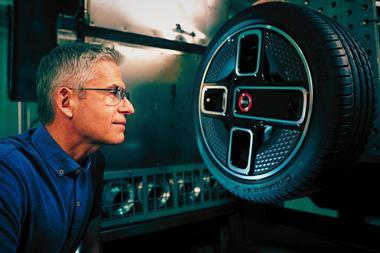

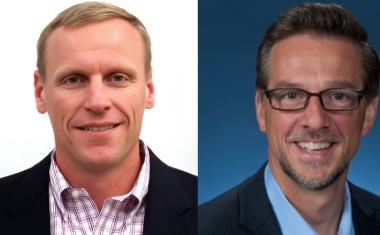




No comments yet